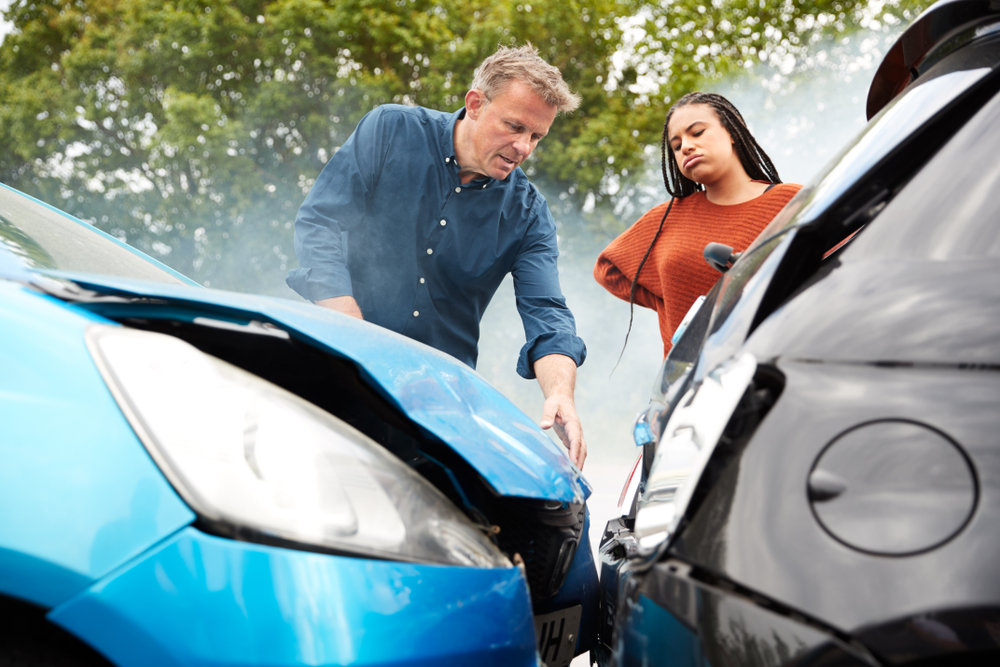Determining who bears fault for a car accident can quickly turn complicated. In a bid to minimize payouts, the insurance company may argue that you caused the accident, while your lawyer may prove that the other driver's negligence led to the incident. You may also face conflicting statements from the drivers in the collision and find it difficult to collect clear evidence that showcases who bears liability.
Working with an car accident attorney in Tampa makes it easier to establish fault for the accident and determine the compensation you deserve. Attorneys are in the best position to navigate the complexities of the legal process, gather evidence on your behalf, and craft a compelling narrative advocating for your rights.
Understanding the Concept of Fault in a Car Accident
Before diving deeper into the rules and principles for determining fault for a car accident, ensure you understand the term fault in this context.
An Explanation of What It Means To Be at Fault
Fault in a car accident means that a person's actions, whether intentional or negligent, contributed to the incident. If, in other words, a party had done (or not done) certain things, the accident would not have happened.
The Role of Negligence in Determining Fault
Negligence plays a crucial role in this determination. Negligence is a legal term that describes a situation where someone acts carelessly and causes harm to another person as a result. Failing to observe traffic rules, not paying attention to the road, or driving under the influence all constitute negligence.
How Fault Influences Insurance Claims and Legal Action
The concept of fault is integral to insurance claims and legal action that may arise following a car accident. The at-fault party is usually responsible for paying damages, either through their insurance company or out of pocket. This is why it is essential to accurately establish who is at fault after a car accident, as it directly influences the financial and legal repercussions.
Even in states with no-fault insurance coverage, which offers protection and coverage for medical bills regardless of who caused an accident, determining fault can prove incredibly helpful in an insurance claim.
In most states with personal injury protection insurance coverage, the state lays out a specific threshold that the cost of treatment for injuries must exceed before the injured party can pursue compensation from the liable party's insurance company. Once your injuries reach that threshold, including cases in which you suffered permanent disability from a car accident, you can pursue a claim.
Even in no-fault states, you still have the right to pursue compensation for some damages relating to an accident, including damage to your vehicle.
The Use of Legal Principles in Determining Fault
Beyond simple negligence, there are various legal principles to consider when determining fault after a car accident.
Understanding Contributory and Comparative Negligence
Contributory negligence is a principle that suggests that if the injured person is even slightly responsible for the accident, they cannot recover damages. Most states do not have contributory negligence laws on the books, as they acknowledge that multiple parties can end up sharing fault, and the party that bears primary negligence may have contributed much more to the incident.
Comparative negligence, on the other hand, is a principle whereby the percentage by which the victim was at fault reduces their compensation. Imagine an example where John ends up in a car accident. The other driver looked down at his phone for too long as the light changed, causing him to blow through the light.
John, however, chose to speed, which caused him to move through the light faster than the other driver anticipated. The insurance company might determine that John bears 20 percent liability for the accident, meaning he could recover 80 percent of the damages. If, however, the insurance company deems that he caused 30 percent of the incident, he could recover 70 percent of the damages.
In many cases, if the insurance company decides that a victim bears 50 percent or more of the fault for an accident, it will not pay out, or the victim will need to use their own insurance coverage to take care of the damages.
A lawyer can establish how much fault the other party bears for the incident, including providing evidence that can help show that you do not bear liability.
The Role of Traffic Laws in Determining Fault
Traffic laws also play an essential role in determining fault. Violations of these laws, which include running a red light or failing to signal, could easily constitute negligence and form the basis of a liability claim. Your lawyer will have a strong understanding of local traffic laws, including local distracted driving regulations, and can determine how those factors may have played into your accident.
The Role of Insurance Companies in Determining Fault
Insurance companies have their own methods for determining fault after a car accident. They will usually do the following:
Conduct a Thorough Investigation Into the Accident
This may include visiting the accident scene, taking photographs of the site, and interviewing potential witnesses. They may also examine the vehicles that were in the accident for any signs of collision or damage, which could provide crucial information about the circumstances leading to the accident. They could further assess the physical evidence, such as skid marks or debris, and use accident reconstruction experts when necessary to get a clear understanding of exactly what transpired.
This thorough investigation can give insurance companies more information about what likely led to a car accident.
Bring in Accident Reconstruction Experts
Especially in cases of disputed liability, the insurance company may bring in accident reconstruction experts to recreate the scene and give a better idea of what likely led to the incident. Your lawyer may also want to work with these experts to more clearly understand the preceding events.
When To Hire a Lawyer
Dealing with an insurance company after an accident can prove incredibly complicated and, in many cases, highly frustrating. Any time you suffer injuries in a car accident, hire a lawyer to support your case and provide you with more information about your rights. You may note that you need to bring in a lawyer sooner in the following circumstances.
Disputed Fault
In cases of disputed fault, the insurance company might try to claim that its driver did not cause the accident or that you contributed more than you actually did. You may have followed all traffic laws and avoided distraction at the time of the accident, but the insurance company may still try to deem you at fault. The driver that caused your accident may, worse still, not admit liability, leaving you struggling.
If you end up dealing with a disputed fault after a car accident, working with a car accident lawyer can allow you to establish fault and show how the other driver's negligence caused the incident.
Denied Claims
Any time the insurance company denies a claim, you may appeal their denial. Appealing a denial can overturn the insurance company's decision and allow you to get the compensation you deserve.
Without a lawyer on your side, you may end up with the same result as before. If, on the other hand, you work closely with a lawyer, you can show the other driver's liability for the accident and get a better outcome to your claim.
Slow Response Times
Dealing with the insurance company after a car accident takes time. You can expect it to take several weeks to get a resolution to even a minor claim. If, however, you find your insurance company pushing back on your claim or cannot get a response even when you submitted questions or concerns to the insurance company, you need a car accident lawyer to help with your claim.
Questions Regarding Your Claim
You may find you have questions about your car accident claim and your right to compensation, especially if you end up struggling to establish liability. A lawyer can answer all those essential questions and provide insights into what to expect as your claim progresses.
You have the right to contact a lawyer whenever you have questions or concerns about your insurance claim, including cases in which you may not know whether the insurance company has dealt fairly with you. They may pressure you to accept a first settlement offer that does not seem to work for your needs, which may serve as your reason for contacting an attorney.
Common Mistakes To Avoid When Determining Fault
During the investigation process after a car accident, drivers may make some common errors.
Prematurely Admitting Fault
Drivers will often admit fault for an accident too early before the insurance company or the lawyer has had a chance to investigate. The driver may sometimes not even know who caused the accident or may assume that he contributed due to distraction. Later investigation, however, may uncover that the other driver contributed heavily to the incident.
Sharing Too Much Information
When dealing with an insurance company, remember that adjusters work for the company and want to avoid paying out any more than necessary to the injured party in a car accident, even in cases where the victim might deserve substantial compensation for those injuries.
During interactions with the insurance company, avoid sharing unnecessary information, including your recovery status or details of activities you may engage in as you recover.
Failing to Secure a Lawyer
In any case of disputed liability after a car accident, you need a lawyer to negotiate with the insurance company and investigate the claim. Give your lawyer all of the information necessary to process your claim effectively. If you do not have a lawyer on your side, the insurance company may determine that you bear fault for the accident or more liability than you really do.
Having a lawyer also means that you have someone committed to protecting your best interests rather than the interests of a faceless insurance company or the other driver in the accident.
Failing To Check the Police Report
The police report is a preliminary document that offers key information about the accident. The officer that responds to the scene will sometimes have a solid idea of who caused the accident, which the police report may reflect.
In other cases, however, the police report may contain inaccurate information, including an incorrect assessment of liability. Work closely with your lawyer to get a better idea of how you can contest that information and change it if necessary.
Your lawyer can protect you from inadvertently accepting liability for an accident.

Contact a Lawyer After Your Car Accident
With the knowledge of who you can hold at fault, you can protect your rights and ensure you receive the compensation you deserve. If you're in a car accident, call a lawyer to better understand who bears liability and how you can secure the compensation you deserve.










